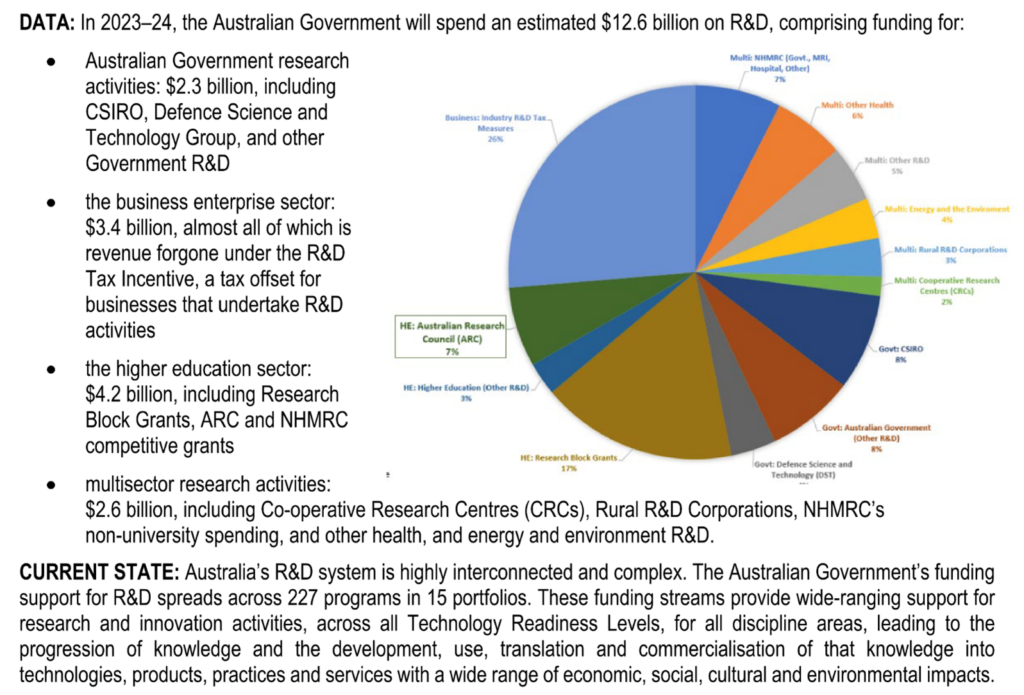Volunteer Support
ICRI 2024
- Held every two years, the International Conference on Research Infrastructures (ICRI) hosts up to 500 delegates and discusses global research infrastructure (RI) topics. The host alternates between EU and other countries and the event is organised jointly by the European Commission and the host country.
- As Australia’s national science agency, CSIRO is delivering ICRI 2024 in cooperation with the European Commission and the Australian Department of Education.
- This is the first time ICRI will be held in the Asia Pacific region. Australia was partly chosen to host because of its proximity to Southeast Asia and the Pacific, to help increase these regions’ engagement with the global research infrastructure community.
- ICRI 2024 will see more than 90 of the world’s leading research infrastructure experts from across diverse geographies and scientific disciplines discuss their areas of expertise and experience.
- ICRI 2024 will help build capacity, capability, collaboration and performance of research infrastructures around the world. It will provide a platform to showcase best practices, explore opportunities for international collaboration; and strengthen networks that allow for an ongoing exchange of information, ideas and talent.
- ICRI’s themes, program and side events can be accessed through the conference’s Brella app or website. The ICRI 2024 website has extensive instructions on how to use the Brella app: https://icri2024.au/
- ICRI 2024 is a hybrid event, held both in person and online, to ensure the greatest possible level of global involvement and benefit from the sessions held. All sessions and presentations will be recorded and made publicly available after the conference.
- Australian and international stakeholders have the opportunity to make further connections through side events, meetings and site tours designed to enhance engagement, foster networking opportunities, and deliver valuable insights.

About CSIRO
- CSIRO is Australia’s national science agency, and has been named the country’s most trusted Government service for the last two years in a row.
- We are one of the world’s largest, multidisciplinary research organisations. We solve Australia’s greatest challenges through innovative science and technology; while delivering for the nation’s economy, environment and society. We create around $10.2 billion of benefit for Australia each year as a result of our science.
- We host national research infrastructures and scientific collections on behalf of the nation. These include the Australia Telescope National Facility, the Australian Centre for Disease Preparedness, Australia’s 94-metre ocean research vessel (RV) Investigator, the Pawsey Supercomputing Research Centre, the National Vaccine and Therapeutics Lab, and the Atlas of Living Australia. The new National Research Collections Australia Precinct has been completed and will soon house 13 million specimens in state-of-the-art facilities.
- We also manage major facilities for international partners, like NASA’s Canberra Deep Space Communication Complex, the European Space Agency’s deep space ground station in Western Australia (Norcia Ground Station), and the SKA Project, an international effort to build the world’s largest radio astronomy observatory.
- We strengthen Australia’s innovation system through global collaboration, leveraging international relationships to complement national capabilities, and effective management of national research infrastructure.
- We have 1,440 international collaborators and customers across 87 countries.
- To learn more about the research infrastructure we host visit www.csiro.au/en/about/facilities-collections
Australian governments and the research sector
- One of the great strengths of Australia’s research infrastructure is its collaborative nature, which is key to driving greater innovation in the sector.
- The Department of Education funds the National Collaborative Research Infrastructure Strategy (NCRIS), globally recognised as a best practice representation of RI funding bodies.
- NCRIS strategically invests in open access to equipment, online datasets and tools, and technical expertise. It supports an estimated 90,000 Australian researchers each year, and ensures Australian researchers have access to the latest technology and facilities to advance their research and address national priorities.
- National Research Infrastructure (NRI) is essential to supporting research discovery breakthroughs, adapting to new technologies, and addressing global challenges. Investment in NRI is executed through NCRIS and guided by roadmaps and an advisory board to provide advice on priorities, trends, and opportunities for cutting edge NRI.
- Brisbane is home to several outstanding RIs including the Terrestrial Ecosystem Research Network (TERN), Mass Spectrometry Facility, the National Imaging Facility, and nodes of other significant RIs like the Australian National Fabrication Facility. It also hosts four world-class universities, more than 100 pioneering health and biotech facilities and a strong business and entrepreneurial ecosystem.
- Australian universities and the RI ecosystem play a vital role in hosting national research infrastructure and preparing our future research workforce.
MS notes for Holly/Chris – perhaps a point or two from the following? NB: It’s drawn from an ARC Board briefing pack so please don’t reproduce as is. Thanks…
NCRIS is one of many programs – but has a specific remit, national, beyond single institutions etc – a ‘research fabric’ and ‘facilities’ type of investment… Linking back to Holly’s point though, it’s also incredibly timely to have ICRI now as we complete our current Roadmap and the NCRIS, through our NRI advisory process consults and prepares for the 2026 Roadmap?

Australian governments and the research sector
- One of the great strengths of Australia’s research infrastructure is its collaborative nature, which is key to driving greater innovation in the sector.
- The Department of Education funds the National Collaborative Research Infrastructure Strategy (NCRIS), globally recognised as a best practice representation of RI funding bodies.
- NCRIS strategically invests in open access to equipment, online datasets and tools, and technical expertise. It supports an estimated 90,000 Australian researchers each year, and ensures Australian researchers have access to the latest technology and facilities to advance their research and address national priorities.
- National Research Infrastructure (NRI) is essential to supporting research discovery breakthroughs, adapting to new technologies, and addressing global challenges. Investment in NRI is executed through NCRIS and guided by roadmaps and an advisory board to provide advice on priorities, trends, and opportunities for cutting edge NRI.
- Brisbane is home to several outstanding RIs including the Terrestrial Ecosystem Research Network (TERN), Mass Spectrometry Facility, the National Imaging Facility, and nodes of other significant RIs like the Australian National Fabrication Facility. It also hosts four world-class universities, more than 100 pioneering health and biotech facilities and a strong business and entrepreneurial ecosystem.
- Australian universities and the RI ecosystem play a vital role in hosting national research infrastructure and preparing our future research workforce.
- MS notes for Holly/Chris – perhaps a point or two from the following? NB: It’s drawn from an ARC Board briefing pack so please don’t reproduce as is. Thanks…
- NCRIS is one of many programs – but has a specific remit, national, beyond single institutions etc – a ‘research fabric’ and ‘facilities’ type of investment… Linking back to Holly’s point though, it’s also incredibly timely to have ICRI now as we complete our current Roadmap and the NCRIS, through our NRI advisory process consults and prepares for the 2026 Roadmap?

Key Contacts
Event Support
Alex Stott – Event Lead
0449 557 608
alex.stott@csiro.au
Alana Fitzgerald – Project Support Officer
0411 476 404
alana.fitzgerald@csiro.au
Partnerships Support
Rebecca Michael – Executive Manager, Partnerships & Business Development
rebecca.michael@csiro.au
Communications Support
Chris Still – Communications Lead
chris.still@csiro.au
Language Support
E
We acknowledge the Traditional Owners of the lands and waters throughout Australia, and pay respect to the Elders past, present and emerging. We recognise the importance of connection to culture, land, kinship and community to the health and wellbeing of Aboriginal & Torres Strait Islander families. We acknowledge the cultural practices and traditions still carried out today and being passed down to future generations.


